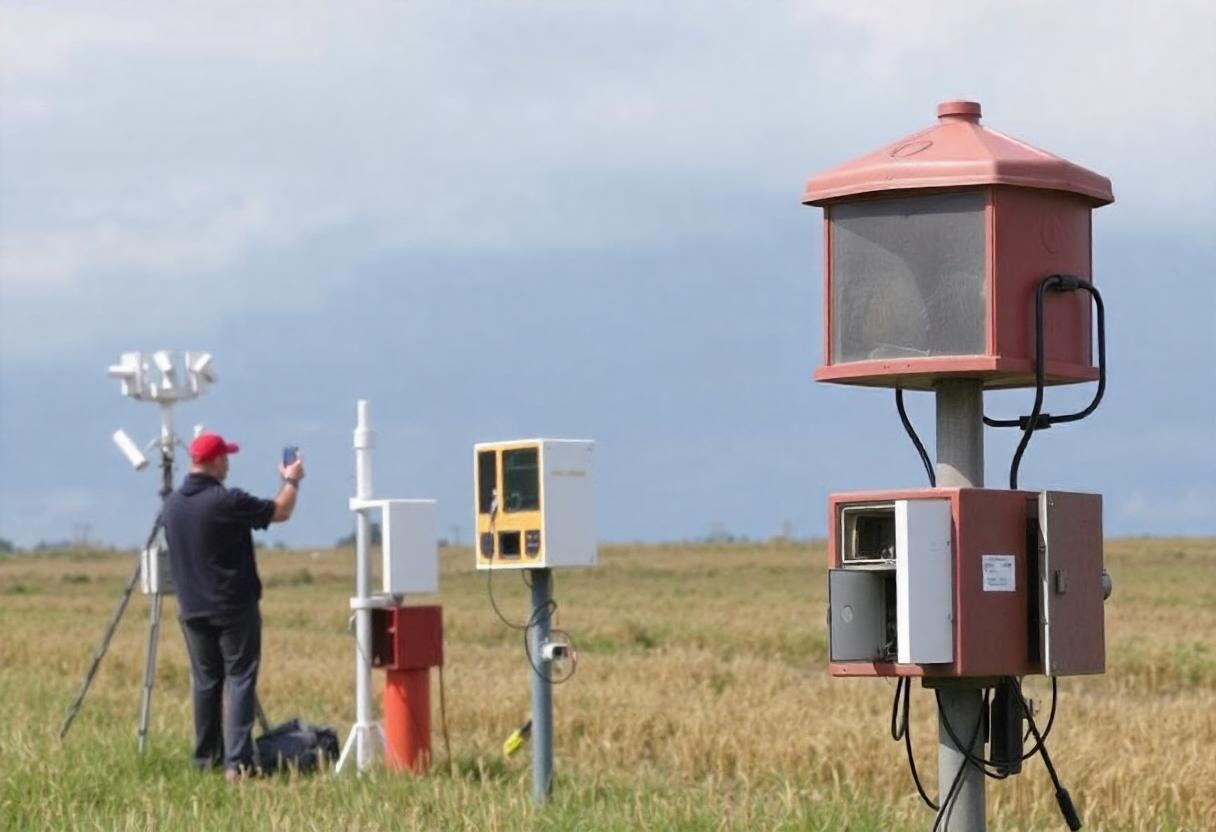
Agriculture weather stations play a critical role in modern farming by providing real-time, localized data about various weather conditions. These stations help farmers make informed decisions to improve crop yields, optimize water usage, and enhance overall productivity. In recent years, advancements in technology have made weather stations more accessible and efficient, enabling farmers to gather precise information on temperature, humidity, wind speed, rainfall, and more.
Types of Weather Stations in Agriculture
Agriculture weather stations come in various types, each designed to cater to specific farming needs. The most common types include:
- Basic Weather Stations: These stations provide essential data, such as temperature, humidity, and rainfall. They are affordable and suitable for small-scale farmers.
- Advanced Weather Stations: Offering additional features like soil moisture sensors, wind direction indicators, and solar radiation monitors, these stations are designed for larger farms with more complex needs.
- Wireless Weather Stations: These stations use wireless technology to transmit data to a central hub, allowing farmers to access information remotely. They are highly convenient for large farming areas.
- Smart Weather Stations: Integrated with IoT (Internet of Things) technology, these stations provide real-time data that can be analyzed using AI and machine learning algorithms to make predictive farming decisions.
Key Components of Agriculture Weather Stations
An agricultural weather station is composed of several key sensors and devices that work together to provide comprehensive weather data. These include:
- Thermometer: Measures air temperature, which is critical for monitoring plant growth conditions.
- Hygrometer: Tracks humidity levels, helping farmers prevent diseases caused by excess moisture.
- Anemometer: Measures wind speed and direction, crucial for irrigation scheduling and pest control measures.
- Rain Gauge: Collects data on rainfall amounts, allowing farmers to adjust irrigation plans.
- Soil Moisture Sensor: Monitors the moisture content in the soil, helping in the efficient use of water resources.
Importance of Weather Data in Agriculture
Weather data is crucial in agriculture for several reasons:
- Improved Crop Management: Accurate weather forecasts help farmers plan planting, fertilization, and harvesting times, ensuring crops receive the right care at the right time.
- Water Conservation: By monitoring rainfall and soil moisture, farmers can reduce water usage, especially in regions prone to drought.
- Disease and Pest Control: Certain pests and diseases thrive under specific weather conditions. Weather stations provide data that helps predict and prevent outbreaks.
- Frost Prevention: Low temperatures can damage crops. Weather stations help farmers detect frost risks and take protective actions.
Role of IoT in Agriculture Weather Stations
The integration of IoT in agriculture weather stations has revolutionized farming practices. IoT-enabled stations allow real-time data collection and remote monitoring, giving farmers instant access to weather conditions without physically visiting the farm. This not only saves time but also ensures that critical decisions are made promptly. IoT technology also enables weather stations to communicate with other farming devices, such as automated irrigation systems, creating a fully integrated farming environment.
Challenges in Implementing Weather Stations
Despite their advantages, implementing weather stations in agriculture comes with challenges. The initial cost of advanced weather stations can be prohibitive for small-scale farmers. Additionally, the accuracy of weather data can be affected by poor maintenance of sensors or environmental factors such as dust and debris. Connectivity issues, especially in remote areas, can also hinder the real-time transmission of data from wireless or smart weather stations.
Government and Private Sector Support
To encourage the adoption of weather stations in agriculture, several governments and private organizations have initiated subsidy programs and awareness campaigns. These initiatives aim to make weather stations more affordable and accessible to farmers, especially in developing regions. Additionally, private companies are investing in research and development to create more efficient, cost-effective, and user-friendly weather stations.
Future Trends in Agricultural Weather Monitoring
The future of agricultural weather monitoring is moving toward greater automation and precision. The integration of artificial intelligence (AI) with weather stations will allow for more accurate forecasting and predictive analytics. Farmers will be able to rely on AI-driven insights to make better decisions about planting, irrigation, and pest management. Drone technology is also expected to be used alongside weather stations for real-time monitoring of large agricultural fields.